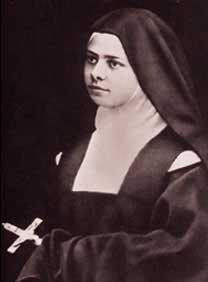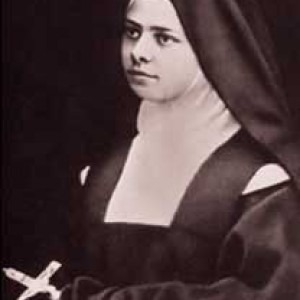Podcast: Play in new window | Download (Duration: 31:01 — 21.4MB) | Embed
Subscribe: Apple Podcasts | Spotify | Amazon Music | Android | Pandora | iHeartRadio | JioSaavn | Podchaser | Gaana | Podcast Index | Email | TuneIn | Deezer | Anghami | RSS | More

Day 2 – The Last Retreat by St. Elizabeth of the Trinity- Beginning to Pray with Dr. Anthony Lilles
Dr. Anthony Lilles and Kris McGregor explore St. Elizabeth of the Trinity’s retreat writings, particularly her reflections on interior silence and self-possession in Christ. St. Elizabeth describes how true peace comes from gathering one’s interior faculties through silence and surrendering them to God. She highlights the significance of the phrase Nescivi, meaning “I no longer know anything but Him,” illustrating the soul’s complete focus on God despite external turmoil or inner struggles. Drawing from Carmelite spirituality, holy recollection fosters this unity with God, allowing the soul to become a vessel for divine grace and harmony.
The transformative power of suffering and trials gives us a chance to use them as opportunities for deeper union with God rather than obstacles to peace. Dr. Lilles connects Elizabeth’s teachings to the experiences of Mary Magdalene and the contemplative example of Mary of Bethany, emphasizing the need to choose “the one thing necessary”—a heart undistracted by worldly concerns. He also recounts Elizabeth’s personal battle with suffering in her final days, showing how her unwavering focus on Christ enabled her to endure spiritual and physical affliction with profound trust. This episode offers a compelling call to embrace silence, recollection, and surrender as pathways to deeper intimacy with God.
Discerning Hearts Reflection Questions
- The Call to Interior Silence: How can you cultivate a habit of holy recollection in your daily life to remain more present to God?
- Self-Possession in Christ: In what ways do distractions, emotions, or external pressures pull you away from maintaining a prayerful awareness of Christ?
- The Meaning of Nescivi: What does it mean for you personally to surrender everything to God and say, “I no longer know anything but Him”?
- Suffering as an Opportunity for Grace: How can trials and hardships in your life be seen as invitations to deeper union with Christ rather than obstacles to peace?
- Learning from Mary Magdalene: What aspects of Mary Magdalene’s transformation and devotion inspire you to grow in your own relationship with Christ?
- The Role of Holy Recollection in Spiritual Growth: How can you incorporate moments of silent prayer and reflection into your daily routine to foster greater intimacy with God?
- Trusting in God’s Hidden Presence: When God feels distant or silent, how can you strengthen your faith and remain steadfast in trust?
- The Soul as a Throne of the Holy Trinity: What steps can you take to align your thoughts, emotions, and desires more fully with God’s will so that your soul becomes a dwelling place for His presence?

From “Last Retreat Day 2” found in The Complete Works vol 1:
5. It is the same for the soul that has entered into the “fortress of holy recollection”: the eye of its soul, opened in the light of faith, discovers its God present, living within it; in turn it remains so present to Him, in beautiful simplicity, that He guards it with a jealous care. Then disturbances from without and tempests from within may arise; its self-esteem may be wounded: “Nescivi”! God may hide Himself, withdraw His sensible grace: “Nescivi .” Or, as St. Paul writes: “For love of Him I have forfeited everything.” Then the Master is free, free to flow into the soul, to give Himself “according to His measure.”  And the soul thus simplified, unified, becomes the throne of the Unchanging One, since “unity is the throne of the Holy Trinity.”
And the soul thus simplified, unified, becomes the throne of the Unchanging One, since “unity is the throne of the Holy Trinity.”
We would like to thank Miriam Gutierrez for providing “the voice” of St. Elizabeth for this series
For other episodes in the series visit the Discerning Hearts page for Dr. Anthony Lilles
Anthony Lilles, S.T.D., has served the Church and assisted in the formation of clergy and seminarians since 1994. Before coming to St. Patrick’s, he served at seminaries and houses of formation in the Archdiocese of Denver and the Archdiocese of Los Angeles. The son of a California farmer, married with young adult children, holds a B.A. in theology from the Franciscan University of Steubenville with both the ecclesiastical licentiate and doctorate in spiritual theology from the Pontifical University of Saint Thomas Aquinas in Rome (the Angelicum). An expert in the writings of St. Elizabeth of the Trinity and the Carmelite Doctors of the Church, he co-founded the Avila Institute for Spiritual Formation and the High Calling Program for priestly vocations. He also founded the John Paul II Center for Contemplative Culture, which hosts symposiums, retreats, and conferences. In addition to his publications, he blogs at www.beginningtopray.com .






